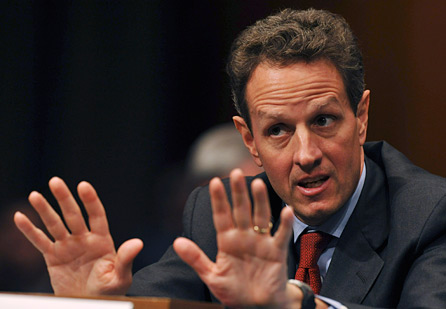A shot of our own medicine? Make it a double.
We’ve repeatedly mentioned the wisdom of buying, selling, and even window shopping on eBay, just to get a legitimate and unbiased idea of what your previously enjoyed wicker stool or T206 Honus Wagner card is worth. (For the latter, $500. We’ll even hand-deliver payment if you want.) We’ve also warned you to take precautions, using only PayPal for payments and not selling to anyone outside the United States. Or at least, outside the United States and Canada, assuming you’re OK with filling out a customs form or two. Or at least, outside the U.S., Canada, Australia, New Zealand, and Western Europe.
Go ahead, tell us we’re idiots. We deserve it. We got greedy and got defrauded.
A couple of months ago we sold an iPhone 4S, functional but with a giant crack down its back, for $265. Our account specifies that we only do business within the United States, but the high bidder was a crook named Pavel Saltykov, user name sapavel, mario291@bk.ru, who lives or at any rate has an address on Rural Bogorodskaya, 19B 6, in Ufa, Bashkortostan. We could have refused his bid, but were feeling foolishly charitable of heart (that was our first mistake) and noted that he’d included more than enough to take care of shipping and duties, so we figured what the hell; let’s increase the level of international amity between former enemies by just a smidgen.
Now, as far as we’re concerned, the Cold War is back on. Reagan should’ve nuked them when he had the chance.
We’re not huge eBayers, maybe one transaction every couple of months. After Mr. Saltykov’s prompt payment we went to the post office, insured the package, got a customs form, kept copies of everything, etc. Mailed the iPhone out November 4. Two months passed and we never heard anything, so we figured everything was fine.
A fortnight ago, we received an email telling us the eBay account was in danger of suspension. Naturally, the initial reaction was “Spam. Come on, this is easy.” But the email didn’t look like spam, all its words were spelled correctly, and the return email address checked out as an eBay.com domain. A quick login to the eBay account showed that the Russian buyer did indeed open a complaint.
He opened it on Christmas Day. Sorry for not checking our eBay account every day in the event that someone files a claim without our knowledge (and for spending the day celebrating a little event called the birth of Christ, instead of being godless Commie heathens.) It bears mentioning that Saltykov never once tried to contact us directly, which eBay itself lists as its first recommended means of resolution. He just went straight to eBay. Our account showed that once he opened the claim on Christmas, we hadn’t responded in the allotted 7-day window. Granted, that was difficult to do, given that we didn’t know that a claim had been filed, let alone that the clock had started ticking. Excluding the most recent piece of correspondence, the email that we thought was spam, every word of this (extremely unilateral) conversation was in the form of eBay messages – which we’d only have seen if we’d happened to have logged into our account. Given that we had no items for sale, and weren’t shopping for anything, we had no reason to peruse our account; nor to see that we’d neglected to defend ourselves against a grievance that we never knew had been filed.
Only that day did eBay send us an email, rather than an internal message, saying in so many words, “We paid the guy on your behalf, now you owe us.”
Which prompted us to pick up the phone, given that eBay wasn’t letting us send an email (or even one of their stupid internal messages) with regard to this case. We called and said in considerably more polite terms than were justified that they had to be fricking kidding us, telling us that we now owed close to $300. Their email even included the ominous phrase “case closed.” The representative we talked to said, “Thanks for the proof that you sent it. But we don’t have proof that it was delivered.” Well excuse us for not being Russian Post.
So we tracked the package on the U.S. Postal Service’s site. The last thing they know, the iPhone was at an international holding facility in Los Angeles. A look at the publicly available tracking data for the package told us as much. Keep in mind, this is now more than 2 months since we mailed the damn thing. We called to find out where it is, the USPS opened up a case, and the representative said, “You know, you really should have opened your claim within 30 days.” We gritted our teeth and kept quiet. She said to give it 3 weeks, at which point we should have heard from either someone on the American side or the Russian side. She mentioned something about possible reimbursement, and seemed sincere.
If either postal service reimburses us, we had agreed to reimburse eBay. It seemed like the American thing to do. HOWEVER…
The reason eBay even demanded payment in the first place, rather than just forcibly removing it from us, is that the PayPal account linked to our eBay account had a zero balance. Blood from a stone, etc. A couple of days ago we received a PayPal deposit for an unrelated transaction, thus we had a positive balance. At that point eBay (with PayPal’s approval, seeing as the one is a subsidiary of the other) just up and took our money.
Takeaways:
- A Russian can claim never to have received a package, and somehow that’s the fault of the American sender. Not to sound xenophobic here, but does a Russian eBay rookie with minimal transactions get the benefit of the doubt over a 12-year member with a 99% rating, from eBay’s home country no less?
- eBay serves not only as judge, jury, and executioner, but also as plaintiff’s attorney, collection agency, and bounty hunter. With PayPal as its trusty deputy.
- Use Amazon instead. Or Craigslist, even.
- Never do business with a Russian.





